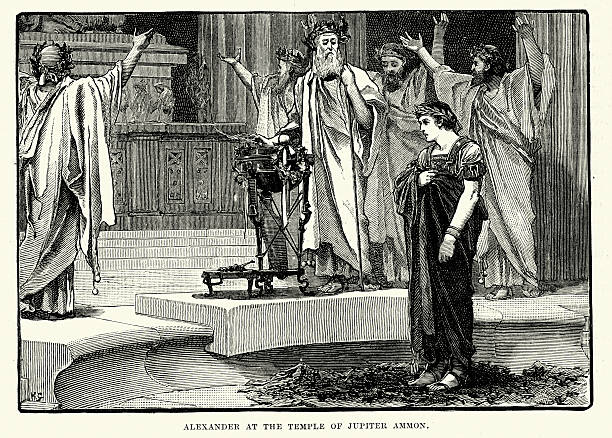Robert Howard, dramatist, brother-in-law to Dryden, staunch Whig and Privy Councillor was described by John Evelyn as, 'a gentleman pretending to all manner of Arts and Sciences'. In the History of Religion (1694) he exhibited both his wide variety of reading and his inherent distaste forpriest-craft. The original subtitle of the work, 'The History of Religion, as it has been abused by Priest-craft', indicated his anticlericalism. The premise of the work was that while all societies had some form of religious institution (it was this that distinguished man from beast) in many cases a variety of folly had been substituted for a correct pattern of theology. Howard suggested that religion (almost from the beginning) had been corrupted by priestly artifice, mystery and metaphysical obscurity. This was illustrated by a series of historical case studies. Arguing for a euhemeristic interpretation of the origin of religion (that is that the heathen gods were originally deified men) Howard presented the reader with a collection of pagan examples of penates or 'household gods'. The pagan priests had fabricated gods to serve their own purposes. The point was extended into a Christian context by Howard's repeated parallel of pagan worship with Catholic equivalents. The pagan Hades was the Catholic purgatory, heathen demonology was the pattern for Christian worship of saints, and gentile sacrifices were a model for Christian practice. Priests of all types had employed the two instruments of 'mystery' and 'persecution' to establish their false dominion. Drawing a comparison between contemporary practice and the Egyptian temple of Isis and the god of silence, Harpocrates, Howard followed Grotius in insisting that theological mystery was the essential 'art' of deviant religion. The History of Religion argued for the continuity of heathen and Christian priest-craft.
Howard was insistent that his text was only directed at the modern paganism evident in the Roman Catholic Church. Both the work and its reception belie this claim. Although reviling popish priests in particular, Howard made the general point that all priests tended to create doctrinal obscurity to ensure their own interpretative monopoly. The priesthood alone was to be the interpreter of the 'dark subtleties' of religion. This was a contemporary issue, he explained, 'the learned now a days have for their obscure writings, and dark gibberish even to keep the (profane) vulgar from daring to use their own understandings about matters which they do see to be so perplexed and intricate'. The prime example was the doctrine of the Trinity. Francis Atterbury pounced upon these subversive implications in a sermon before Queen Mary at Whitehall, The Scorner Incapable of True Wisdom (1694). He rebutted Howard's 'pretended histories of religion' arguing that he was 'so possess'd with the notion of priest-craft, and pious frauds, as to apply it indifferently to all religions, and to everything in religion'. Charles Leslie in his Charge of Socinianism against Dr TillotsonConsidered (1695) echoed this complaint, 'he ridicules all reveal'd religion, and turns it into what he calls priest-craft'. According to Leslie, Howard implicated not only popish doctrines like transubstantiation but also true doctrines like 'the Trinity, Incarnation, Divinity, and Sacrifice of Christ'. Importantly, Leslie suggested that Howard had plagiarized his arguments from the infidel Charles Blount who, in his Great is Diana (1680), had ridiculed the Christian priesthood under the 'cobweb veil' of the heathen priests. In his account of the original of sacrifices and idolatry Howard followed Blount. Leslie noted that both men reduced religious action to the level of 'inward repentance' and morality.
Although Howard had reviled contemporary Christianity in his History of Religion he did not deny the value of religious experience but prescribed a model for reformation. Citing with approval the example of Archbishop Tillotson, he argued that Christ had established 'a religion which consults not only the eternal salvation of men's souls; but their temporal peace and security, their comfort and happiness in this world'. Howard proposed a theology of practice rather than proposition. The nature of religion necessarily linked it to 'moral righteousness' and could be resolved into the social injunction to do 'as we would be done by'. In his Twofold Vindication (1696) Howard re-emphasized these points. His concern was to promote the 'moral religion' and the 'moral Gospel' of Christ. Morality and revelation were much the same thing, simply 'diverse names, under which the same things are denoted'. Christianity was a 'perfect system of all the laws of nature'. With the corruption of the Mosaic law Christ had been sent to restore the 'old moral religion'. Importantly in this defense Howard acknowledged some of the works which had formed the foundations of his own. Charles Blount was an influence, although Howard pointed out that he hoped his own research was presented in a more temperate and respectable manner. The other named text was John Spencer's De Legibus Hebraeorum (1685), a massive work of erudition comparing pagan and Judaic ritual. Spencer's work was employed by Howard to argue that sacrifices were no part of divine religion, 'the true religion which is acceptable to God on its own account dwells in the mind, exerts itself in praises of, and prayers to God, in acts of temperance, justice, and mercy, this needs not multitudes of pompous rites to recommend it'.
Howard's work is important not as original research but because it acts as a neat summary of previous polemic and erudition. Without being directlyplagiaristic it relies heavily on an extensive corpus of prior investigation of which Blount's Great is Diana and Spencer's De Legibus Hebraeorum are notable examples. It is to this bulk of infidel scholarship that we will now turn.


No comments:
Post a Comment
The power is in knowing that you are the center of the universe